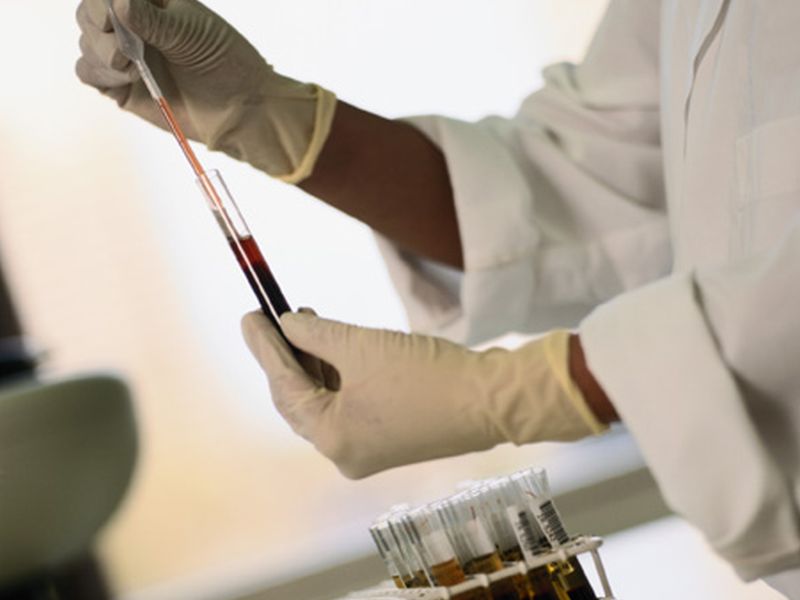By Steven Reinberg
HealthDay Reporter

THURSDAY, March 14, 2019 (HealthDay News) -- A blood test used to detect a heart attack may often provide some misleading results, British researchers report.
In a new study of patients undergoing blood tests at a hospital in England, one in 20 people had high blood levels of troponin, a protein released into the bloodstream during a heart attack. But most of them had no clinical signs of a heart attack.
"This common blood test is now used to assess whether a patient has had a heart attack or not," said lead researcher Dr. Nick Curzen.
"These results are important because they highlight to doctors that they need to be very careful that they only use the troponin test when the patient presents in a way that is classical for a heart attack, and that they interpret an abnormal result accordingly," he explained.
It could be harmful if patients get treated for a heart attack when they are not having one, he added. Curzen is a professor of interventional cardiology at University Hospital Southampton NHS Trust.
As an observational study, however, the researchers can't say what caused these findings. In addition, they relied on patient records, which didn't include outcomes.
Troponin levels differed according to factors such as age, sex and between hospitalized patients and outpatients, the researchers said.
"The study results have important implications for the importance of educating staff in many areas of our hospitals in order to use this test appropriately," Curzen said. "It may well be that the test needs to be different for different patient groups."
For the study, Curzen and colleagues collected data on 20,000 patients who had their troponin levels tested in June, July and August of 2017.
Although slightly more than 5 percent had troponin levels higher than the test manufacturer's recommended upper limit, most of these patients were being seen for other conditions and did not have clinical signs or symptoms of a heart attack, Curzen said.
Guidelines recommend using troponin levels to exclude or diagnose a heart attack. The makers of these tests have recommended a level based on the test results of a few hundred healthy people. Results that exceed this level are said to be abnormal and indicate a heart attack.
In the new study, patients with higher than normal troponin levels included 39 percent of those in critical care units, 14 percent of those admitted for a medical condition, and 6 percent of patients in the emergency department.
Dr. Gregg Fonarow, a professor of cardiology at the University of California, Los Angeles, said that troponin levels shouldn't be used as a sole determinant of whether a patient is having a heart attack.
"It is very well established that troponin levels may be elevated in conditions other than heart attack, and an elevated troponin level alone is not sufficient to make a diagnosis or guide therapy," according to Fonarow, who was not involved with the new study.
Many other studies have shown that troponin tests detect small levels of cardiac injury in patients with a broad range of medical conditions other than heart attack, he added.
Doctors need to be educated about what to expect with high troponin levels so they don't misinterpret results without considering other factors, Fonarow said.
"Individuals with elevated troponin levels, even in the absence of acute myocardial infarction [heart attack], have been shown to be at higher risk for subsequent cardiovascular events," Fonarow noted. "It is important to consider further evaluation of these patients to modify this potential risk and prevent future events."
The report was published online March 13 in the BMJ.
More information
For more on heart attacks, visit the American Heart Association.
Back

The news stories provided in Health News and our Health-E News Newsletter are a service of the nationally syndicated HealthDay® news and information company. Stories refer to national trends and breaking health news, and are not necessarily indicative of or always supported by our facility and providers. This information is provided for informational and educational purposes only, and is not intended to be a substitute for medical advice, diagnosis, or treatment.






